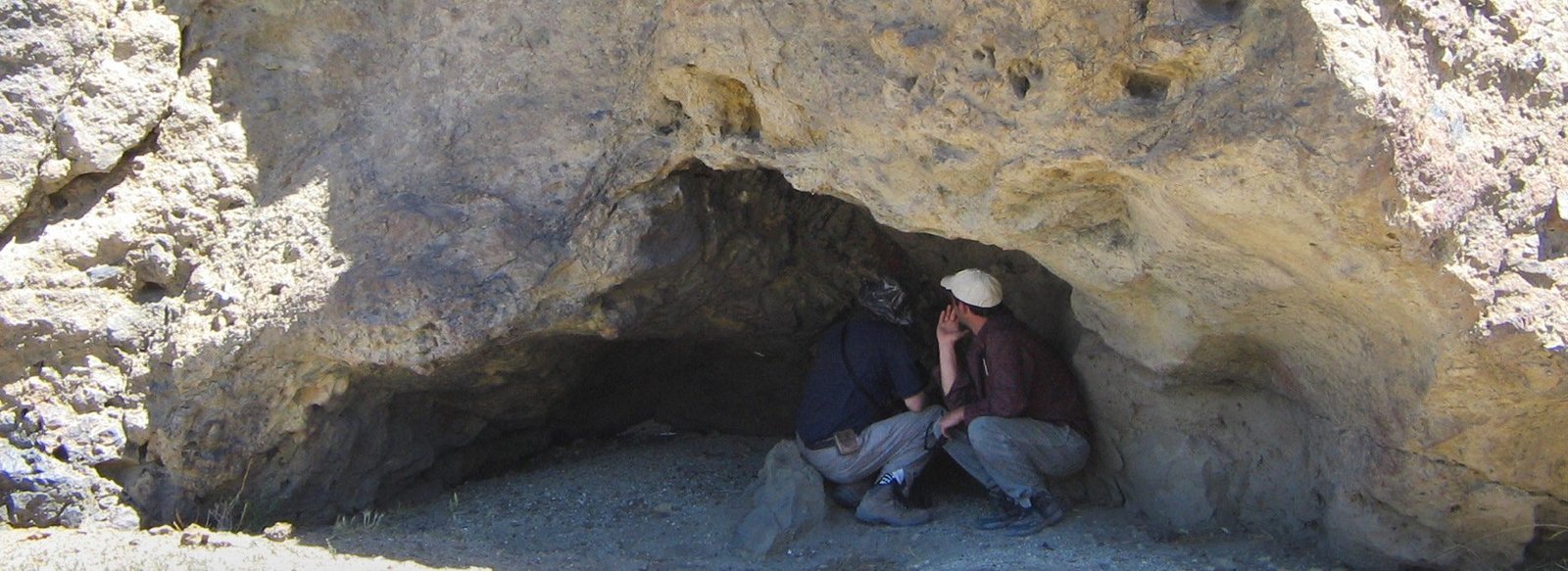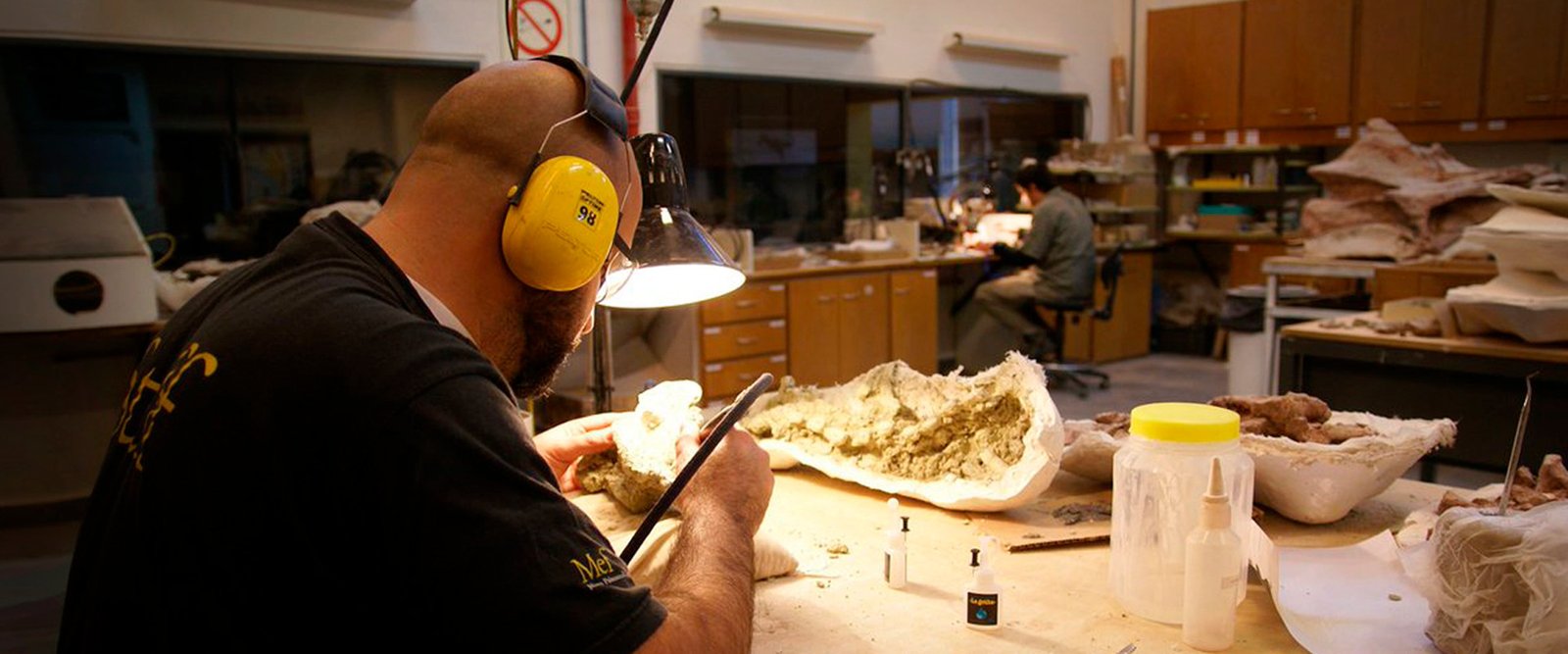
Science
at MEF
They research the history of Life in Patagonia, both in the land as in the sea, during the last 400 million years.
Some are dedicated to study and discover ancient marine creatures that lived in Patagonia when the ocean covered this region. Others study and discover terrestrial species, ranging from extinct plants to animals of all kinds, including reptiles such as dinosaurs or mammals such as rodents and sloths.
All of them, in turn, aim to recreate life conditions in the past, ancient ecosistems and the climatic condition in the different periods of the past.
STAFF scientific department
Division Manager: Dr. Diego Pol
Researchers
Postdoctoral Scholars
Doctoral Scholars
Collection
Laboratories of Mechanical Preparation
Expeditions and Logistics

Research
areas
VERTEBRATE PALEONTOLOGY
This area include research projects on paleobiological aspects of different taxonomic groups of reptiles and mammals.. The main focus of these projects is centered on understanding the evolution of vertebrates through the study of comparative anatomy and phylogenetic systematics.
Current research projects are oriented to the study of the vertebrate faunas recorded in the Mesozoic and Cenozoic rocks of Patagonia.
INVERTEBRATE PALEONTOLOGY
Research on different aspects of the fossil invertebrate fauna of the Chubut Province. The focus of these research projects are centered not only on systematic grounds, but also on attempting to resolve biostratigraphic, paleobiogeographic, and paleoecological problems of the fossil communities under study. In this way, these studies aim to achieve an integral understanding of the invertebrate faunas and their relationships with other faunas. Current research projects are focused on the invertebrate marine fauna of the Upper Paleozoic and Lower Jurassic.
PALEOBOTANY
Studies on evolutionary aspects of the flora of Patagonia, from the Paleozoic to the modern flora.
The main projects are related the study of the composition and evolution of the floras in the Paleogene, Cretaceous, Jurassic and Permian of the Chubut Province. These projects also analyze particular aspects of the evolution of selected taxonomic groups (conifers and equisetals), as well as biostratigraphic, paleoecological, and paleobiogeographical implications of the studied taxa.
PLANTS ECOPHYSIOLOGY
Research projects of this area are focused on the structural and functional adaptations of the extant flora of the Monte and the Patagonian biomes as well as other arid regions of the world. Our objective is to generate criteria for the domestication of the native flora of Patagonia and the development of new crops for arid regions. The main projects are focused on the development of perennial crops and the production of secondary metabolites for industrial use (resins, rubber, fatty acids, etc). Other projects target variation in the life history of plants and the roles of secondary metabolites both in plants and ecosystems.


